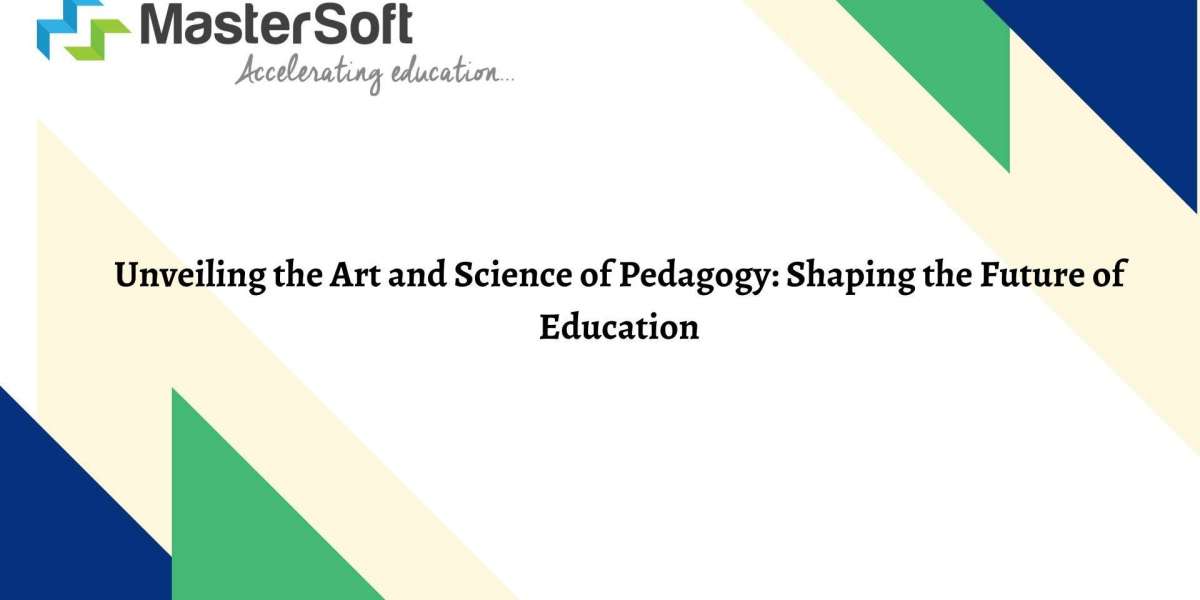Pedagogy, a term that encompasses the art and science of teaching, is fundamental to the educational process. It involves the methods and practices used by educators to facilitate learning and ensure that students acquire the knowledge, skills, and attitudes needed for personal and academic growth. As education continues to evolve in response to technological advancements and societal changes, understanding and applying effective pedagogical strategies is more crucial than ever.
What is Pedagogy?
Pedagogy refers to the theories, principles, and methods of teaching. It is the way educators design and deliver instruction to foster student learning. Pedagogy is not just about the act of teaching but also about the understanding of how students learn. It combines educational theory with practical teaching techniques to create an environment where learning can thrive.
Key Components of Effective Pedagogy
1. Student-Centered Learning:
At the heart of effective pedagogy is a focus on student-centered learning. This approach places the needs, interests, and abilities of students at the forefront of the educational process. Instead of a one-size-fits-all approach, student-centered learning recognizes that each student is unique and adapts teaching methods accordingly.
2. Active Learning:
Active learning involves engaging students in the process of learning through activities that require critical thinking, problem-solving, and collaboration. Techniques such as group work, discussions, hands-on projects, and interactive simulations encourage students to take an active role in their education, making learning more meaningful and memorable.
3. Differentiated Instruction:
Differentiated instruction is a pedagogical approach that acknowledges and addresses the diverse learning needs of students. By providing multiple pathways for students to access content, demonstrate understanding, and engage with learning materials, educators can cater to varying abilities, interests, and learning styles within the same classroom.
4. Formative Assessment:
Formative assessment involves ongoing evaluation of student learning to provide immediate feedback and guide instructional decisions. Unlike summative assessments, which evaluate learning at the end of an instructional period, formative assessments help educators identify areas where students may need additional support and adjust their teaching strategies accordingly.
5. Constructivist Approaches:
Constructivist pedagogy is based on the idea that students construct their own understanding and knowledge of the world through experiences and reflection. Educators using constructivist approaches encourage students to explore, ask questions, and engage in problem-solving activities that promote deeper understanding and critical thinking.
The Evolution of Pedagogy
Pedagogical practices have evolved significantly over time, influenced by various educational theories, research, and societal changes. Here are some key developments in the field of pedagogy:
1. Traditional Pedagogy:
Traditional pedagogy, often associated with teacher-centered instruction, focused on rote memorization and passive learning. Teachers were the primary source of knowledge, and students were expected to absorb information without much interaction or engagement.
2. Progressive Education:
The progressive education movement, led by educational reformers like John Dewey, emphasized the importance of experiential learning, critical thinking, and the development of social skills. Progressive pedagogy advocates for active learning, student agency, and the integration of real-world experiences into the curriculum.
3. Constructivist Pedagogy:
Influenced by the theories of Jean Piaget and Lev Vygotsky, constructivist pedagogy shifted the focus from the transmission of knowledge to the construction of understanding. This approach encourages students to build their own knowledge through exploration, collaboration, and reflection.
4. Technology-Enhanced Learning:
The advent of digital technology has transformed pedagogy by providing new tools and resources for teaching and learning. Technology-enhanced learning includes the use of multimedia, online platforms, virtual simulations, and interactive software to create engaging and personalized learning experiences.
Modern Pedagogical Strategies
In the 21st century, effective pedagogy incorporates a blend of traditional and innovative strategies to meet the diverse needs of learners. Here are some modern pedagogical strategies that are shaping contemporary education:
1. Blended Learning:
Blended learning combines traditional face-to-face instruction with online and digital resources. This approach allows for greater flexibility, enabling students to learn at their own pace and access materials anytime, anywhere. Blended learning also facilitates personalized learning experiences and supports differentiated instruction.
2. Flipped Classroom:
The flipped classroom model reverses the traditional instructional approach by delivering lecture content online for students to review at home and using classroom time for interactive, hands-on activities. This strategy promotes active learning, collaboration, and deeper engagement with the subject matter.
3. Project-Based Learning:
Project-based learning (PBL) involves students working on complex, real-world projects over an extended period. PBL encourages inquiry, critical thinking, and problem-solving, as students apply their knowledge to practical challenges and create meaningful, tangible outcomes.
4. Gamification:
Gamification integrates game design elements into the learning process to increase motivation, engagement, and achievement. By incorporating elements such as points, badges, leaderboards, and challenges, educators can create a dynamic and interactive learning environment that makes learning fun and rewarding.
5. Social and Emotional Learning (SEL):
Social and emotional learning focuses on developing students' social skills, emotional intelligence, and well-being. SEL programs teach students to manage emotions, set goals, show empathy, build positive relationships, and make responsible decisions, contributing to a holistic approach to education.
The Role of Educators in Pedagogy
Educators play a critical role in implementing effective pedagogical practices. Here are some key responsibilities of educators in fostering a positive learning environment:
1. Facilitator of Learning:
Educators act as facilitators of learning, guiding students through the educational process and encouraging active participation. They create a supportive and inclusive classroom environment where students feel valued and motivated to learn.
2. Lifelong Learner:
Effective educators are lifelong learners who continuously seek to improve their teaching skills and stay updated with the latest educational research and best practices. They engage in professional development opportunities and reflect on their teaching methods to enhance student outcomes.
3. Collaborator:
Collaboration is essential in modern pedagogy. Educators work together with colleagues, students, parents, and the community to create a cohesive and supportive learning ecosystem. They share resources, strategies, and insights to improve teaching and learning.
4. Innovator:
Innovative educators embrace new technologies and teaching strategies to create engaging and effective learning experiences. They experiment with different approaches, adapt to changing needs, and encourage creativity and critical thinking in their students.
Conclusion
Pedagogy, the art and science of teaching, is a dynamic and evolving field that is essential to the success of education. By understanding and applying effective pedagogical strategies, educators can create engaging, inclusive, and effective learning environments that meet the diverse needs of students. As education continues to evolve in response to technological advancements and societal changes, the role of pedagogy in shaping the future of education remains vital.








